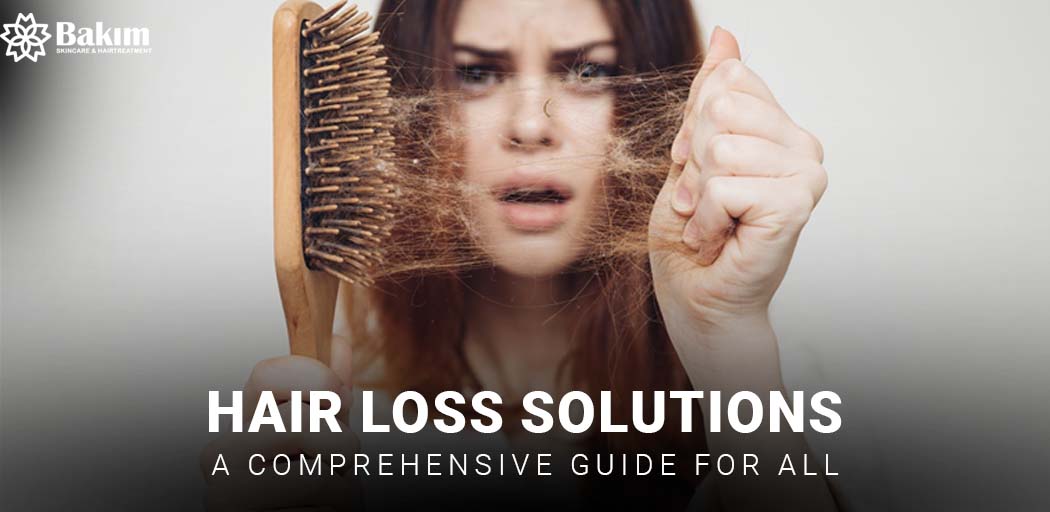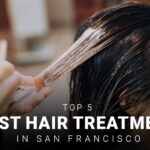Hair loss can be a distressing experience for anyone, regardless of gender. Fortunately, there are numerous solutions available to address this concern. From natural remedies to advanced clinical treatments, the options are vast and varied. In this comprehensive guide, we’ll explore various strategies to combat hair loss, catering to different needs and preferences.
Natural Remedies for Hair Loss in Women
Hair loss in women can be caused by various factors, including hormonal imbalances, stress, and genetics. Here are some natural remedies that can help promote hair growth and minimize shedding:
- Healthy Diet: Consuming a balanced diet rich in vitamins, minerals, and proteins is essential for maintaining healthy hair. Foods like salmon, nuts, spinach, and eggs are particularly beneficial.
- Scalp Massage: Massaging the scalp with essential oils like rosemary, peppermint, or coconut oil can stimulate hair follicles and improve circulation, promoting hair growth.
- Herbal Supplements: Herbal supplements containing ingredients like saw palmetto, ginseng, and horsetail extract may help inhibit the production of DHT, a hormone linked to hair loss.
Clinically Proven Hair Loss Treatments for Men
Hair loss is a common concern among men, with male pattern baldness being the primary cause. Fortunately, there are several clinically proven treatments available to address this issue:
- Finasteride (Propecia): Finasteride is an FDA-approved medication that works by blocking the conversion of testosterone into dihydrotestosterone (DHT), the hormone responsible for shrinking hair follicles.
- Minoxidil (Rogaine): Minoxidil is a topical solution that promotes hair growth by widening hair follicles and prolonging the hair growth cycle. It is available over the counter and has shown effectiveness in treating male pattern baldness.
- Hair Transplant Surgery: For advanced cases of hair loss, hair transplant surgery offers a permanent solution by transplanting hair follicles from donor areas to balding areas of the scalp.
Effective Hair Loss Solutions for Receding Hairline
A receding hairline is a common concern among men, often associated with male pattern baldness. Here are some effective solutions to address this issue:
- Low-Level Laser Therapy (LLLT): LLLT devices emit red light wavelengths that penetrate the scalp and stimulate hair follicles, promoting hair growth and improving hair density.
- Platelet-Rich Plasma (PRP) Therapy: PRP therapy involves injecting concentrated platelets from the patient’s blood into the scalp to stimulate hair follicle activity and promote hair growth.
Affordable Hair Regrowth Products for Thinning Hair
Dealing with thinning hair can be challenging, but there are affordable products available that can help improve hair density and thickness:
- Biotin Supplements: Biotin, also known as vitamin B7, is essential for maintaining healthy hair, skin, and nails. Taking biotin supplements may help improve hair strength and thickness.
- Volumizing Shampoos and Conditioners: Look for shampoos and conditioners formulated to add volume and thickness to thinning hair. Ingredients like keratin and panthenol can help strengthen hair strands and improve overall hair health.
Hair Loss Treatment Options with Minoxidil
Minoxidil is a popular ingredient in hair loss treatments, known for its ability to promote hair growth and prevent further hair loss. Here are some treatment options that incorporate minoxidil:
- Topical Minoxidil Solutions: Over-the-counter minoxidil solutions, such as Rogaine, are applied directly to the scalp to stimulate hair follicles and promote hair growth. These solutions are available in various strengths, typically ranging from 2% to 5%.
- Minoxidil Foam: Minoxidil foam formulations are easy to apply and less messy than liquid solutions. They are suitable for individuals with sensitive skin and can be incorporated into daily grooming routines with ease.
Best Hair Loss Solution Shampoo for Thickening Hair
Choosing the right shampoo is crucial for maintaining healthy hair and scalp. Here are some key factors to consider when selecting a shampoo for thickening hair:
- Ingredients: Look for shampoos containing ingredients like biotin, keratin, and peptides, which help strengthen hair strands and improve thickness.
- Sulfate-Free Formulas: Sulfates can strip the scalp of its natural oils and cause dryness, leading to hair breakage. Opt for sulfate-free shampoos that gently cleanse the hair without causing damage.
- Volumizing Formulas: Volumizing shampoos create the illusion of thicker hair by lifting the hair strands and adding body. They often contain ingredients like panthenol and wheat protein to enhance hair thickness.
Hair Loss Supplements with DHT Blockers
DHT blockers are substances that inhibit the production of dihydrotestosterone (DHT), a hormone linked to hair loss. Here are some popular hair loss supplements that contain DHT blockers:
- Saw Palmetto: Saw palmetto is a plant extract that has been shown to block the enzyme responsible for converting testosterone into DHT, making it an effective natural DHT blocker.
- Beta-Sitosterol: Beta-sitosterol is a phytosterol found in plants that has been found to inhibit the activity of 5-alpha-reductase, the enzyme responsible for converting testosterone into DHT.
Non-Surgical Hair Restoration Methods
For individuals seeking alternatives to surgical hair restoration procedures, non-surgical methods offer effective solutions with minimal downtime. Here are some popular non-surgical hair restoration methods:
- Low-Level Laser Therapy (LLLT): LLLT devices stimulate hair follicles through the use of low-level laser technology, promoting hair growth and improving hair density.
- Platelet-Rich Plasma (PRP) Therapy: PRP therapy involves injecting concentrated platelets from the patient’s blood into the scalp to stimulate hair follicle activity and promote hair growth.
Hair Loss Treatment Clinics Near Me
Finding the right hair loss treatment clinic is essential for achieving optimal results. Here are some tips for locating reputable hair loss treatment clinics in your area:
- Research: Take the time to research different hair loss treatment clinics in your area, reading reviews and testimonials from previous clients to gauge their reputation and credibility.
- Consultation: Schedule consultations with multiple clinics to discuss your hair loss concerns and explore treatment options. Pay attention to how the staff interacts with you and whether they address your questions and concerns adequately.
Advanced Laser Therapy for Hair Loss
Advanced laser therapy has emerged as a promising treatment option for hair loss, offering non-invasive solutions with minimal side effects. Here’s what you need to know about advanced laser therapy:
- Mechanism of Action: Advanced laser therapy devices emit low-level laser light that penetrates the scalp and stimulates hair follicles, promoting hair growth and improving hair density.
- Treatment Schedule: Advanced laser therapy typically requires multiple sessions spaced over several weeks or months to achieve optimal results. It is important to follow the recommended treatment schedule for best outcomes.
FAQ’s
Q1: How long does it take to see results from natural remedies for hair loss?
Results from natural remedies may vary depending on individual factors such as the underlying cause of hair loss and consistency of use. Some people may notice improvement within a few weeks, while others may take longer to see noticeable results.
Q2: Are clinically proven hair loss treatments safe for long-term use?
Yes, clinically proven hair loss treatments such as finasteride and minoxidil are generally considered safe for long-term use when used as directed. However, it is essential to follow the recommended dosage and consult with a healthcare professional if you have any concerns.
Q3: Can hair loss be reversed with non-surgical methods?
Non-surgical hair restoration methods like low-level laser therapy and platelet-rich plasma therapy can help stimulate hair growth and improve hair density in some cases. However, results may vary, and individual factors such as the extent of hair loss and underlying causes will influence the outcome.
Q4: How much does hair loss treatment cost at clinics near me?
The cost of hair loss treatment at clinics varies depending on the type of treatment, the clinic’s location, and the individual’s specific needs. It is best to schedule consultations with multiple clinics to discuss treatment options and pricing.
Q5: Are there any side effects associated with advanced laser therapy for hair loss?
Advanced laser therapy for hair loss is considered safe and generally well-tolerated, with minimal side effects. Some individuals may experience mild scalp irritation or redness, which typically resolves on its own. It is essential to follow the treatment protocol provided by your healthcare provider to minimize the risk of adverse effects.
Q6: Can I use hair loss supplements with other treatment options?
Yes, hair loss supplements can be used in conjunction with other treatment options such as minoxidil or finasteride to enhance results. However, it is essential to consult with a healthcare professional before adding any new supplements to your regimen to ensure compatibility with existing treatments.
Conclusion
Hair loss can have a significant impact on self-esteem and confidence, but it doesn’t have to be a lifelong struggle. By exploring the various treatment options available, including natural remedies, clinically proven treatments, and non-surgical methods, individuals can regain control over their hair health and achieve the thick, luscious locks they desire.
Remember, consistency is key when it comes to hair loss treatments, so stick to your chosen regimen and be patient with the results. Whether you’re exploring affordable options or seeking advanced laser therapy, there’s a solution out there for everyone.


